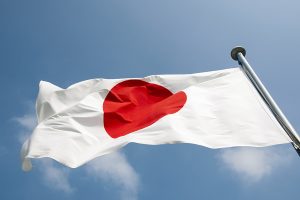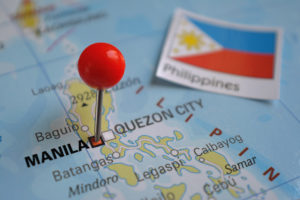Monetisation strategies for poker platforms in Asia by EvenBet Gaming

EvenBet Gaming experts shared how Asian operators can earn decent revenue from online poker even in the most difficult jurisdictions of the region.
Press release.- The poker landscape in Asia is unique due to the region’s cultural and legal dynamic. Having originated in the United States, poker continues to draw diverse audiences and offer new approaches to the traditional game. This is why gaming operators need to be aware of how technology can meet the changing player demands.
EvenBet Gaming combines two decades of industry experience with cutting-edge technology to deliver top-tier online poker solutions to the competitive Asian market. The company experts shared how Asian operators can earn decent revenue from online poker even in the most difficult jurisdictions of the region.
Birth of poker clubs in Asia
The modern history of online poker in Asia started in the form of poker clubs and found its roots in China. In the Asian region, poker clubs are the epitome of the gaming experience. They use the social component of Eastern culture and also offer competition, sometimes absent in other games.
Korea embraced poker as a game of skill, with variations like Badugi becoming especially popular. India has witnessed a surge in the number of online poker sites, especially rummy-style games. In its turn, the Philippines with its comparatively relaxed attitude towards gambling has become the host of numerous international poker tournaments and is home to several online poker companies. Live poker has been legalised in Japan despite the country having some of the strictest gambling laws in the world. The game is gradually becoming more popular, especially among young people and poker clubs and small-stakes tournaments are now common in most cities.
In Asia, poker clubs are more than just places to play but also places where people engage in social activities. For operators, these clubs are a lower-risk B2B opportunity than large-scale online platforms. They provide a stable source of income and address the players’ need for social contacts and local engagement.
Asia is a mix of challenges and opportunities for poker platform operators. Due to the differences in the regulatory systems, payment processing options, and culture, each country requires its approach to monetisation. The solutions provided by EvenBet Gaming are highly customisable to these different market situations, thus helping operators succeed in Asia’s evolving poker environment.
Monetising poker games for businesses
It is crucial to find the right ways to monetise poker games to sustain and expand your business in the Asian market. As the game gains popularity, operators have to develop different monetisation strategies to attract the audience.
To stay competitive, poker operators in Asia are now employing several monetisation strategies. These are poker clubs, in-store shopping features, side games, and others. All of them have their advantages and are designed to meet the specific needs of poker players.
See also: EvenBet Gaming analyses the marketing issues of operating igaming B2B companies in the Netherlands
Poker clubs
As we have already noted, poker clubs appeared in this area and are one of the pillars of Asian gambling. Originating in China, this model has become highly popular across the region, as Asian poker clubs are usually organised in a way that supports both community building and monetisation:
- App owner: offers the basic framework and tools required for the creation and functioning of poker clubs.
- Club owner: is responsible for the recruitment of players and the coordination of games of a particular club.
Players join these clubs and buy virtual currency from the club owners (usually “chips” or “rubies”) to engage in the games. This setup creates a feeling of togetherness and aligns with the culture highly valued in the country — the culture of high social interaction.
For operators, poker clubs offer several advantages:
- Poker clubs are popular among players because they create a close-knit community and loyalty among players. This social aspect improves player retention and engagement.
- Compared to traditional online poker platforms, poker clubs are a less risky B2B model. Operators deal with fewer transactions and counterparties as only the club owner operates the whole club financial system, which can help manage operational risks.
- Operators can make stable revenues from club memberships and local events without fluctuations associated with larger-scale platforms.
In-game shopping features
Club owners and players can buy rubies or other virtual currency in bulk and use it to organise club games or participate in play-money games and tournaments. Also, exclusive in-game rewards sold in such stores (like Rabbit Hunting) increase player engagement and satisfaction. This feature is in line with the Asian market that thrives on community and reward-based experiences. The internal shop feature is compatible with existing poker solutions such as real money games and thus adds to the product’s versatility.
Subscription monetisation
This model is typical for both virtual and traditional gambling. It creates closed groups where players pay for the right to play rather than risking their money during the game itself. This way, poker game access becomes a subscription-based service, just like VOD or paid fitness apps. The approach generates a constant revenue flow for the operators and improves player retention.
Side games
Side games such as roulette, blackjack, and slots also add more fun and extra income for the casino. These games can be accessed conveniently while at the poker table, for instance in a separate window so that one can play several games simultaneously. These games complement the regular poker games and are compelling to a wider audience.
Why clubs resonate with Asian players
Asian culture places a high value on social connections and group activities, and at the same time, online payment processing is extremely burdensome across the region. So, poker clubs are in high demand among players in Asia. These clubs create a sense of community and belonging, allowing players to interact with friends in a familiar environment. This social aspect is one of the reasons for the popularity of poker clubs in Asia.
The poker niche in Asia is rich with opportunities and it is crucial to learn how to monetise the game to take advantage of this market. With the help of poker clubs, in-store features, side games, and other monetisation models, operators can enhance their revenue potential and cater to the diverse needs of Asian players.








